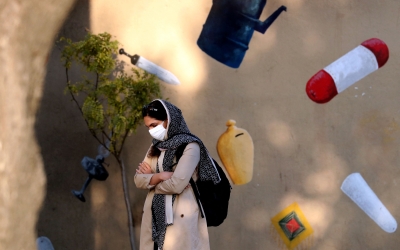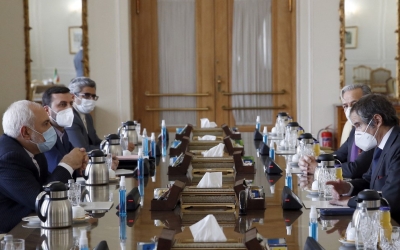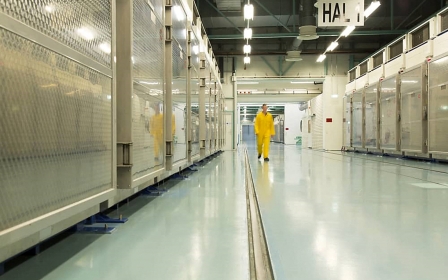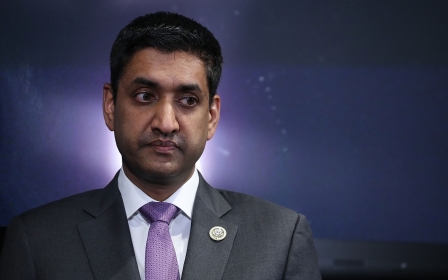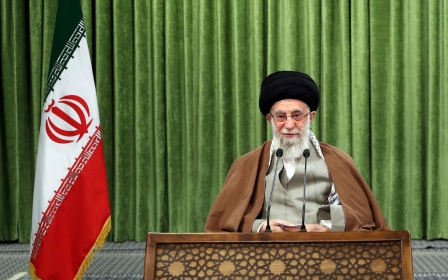Diplomats optimistic about reviving Iran deal after round of indirect talks
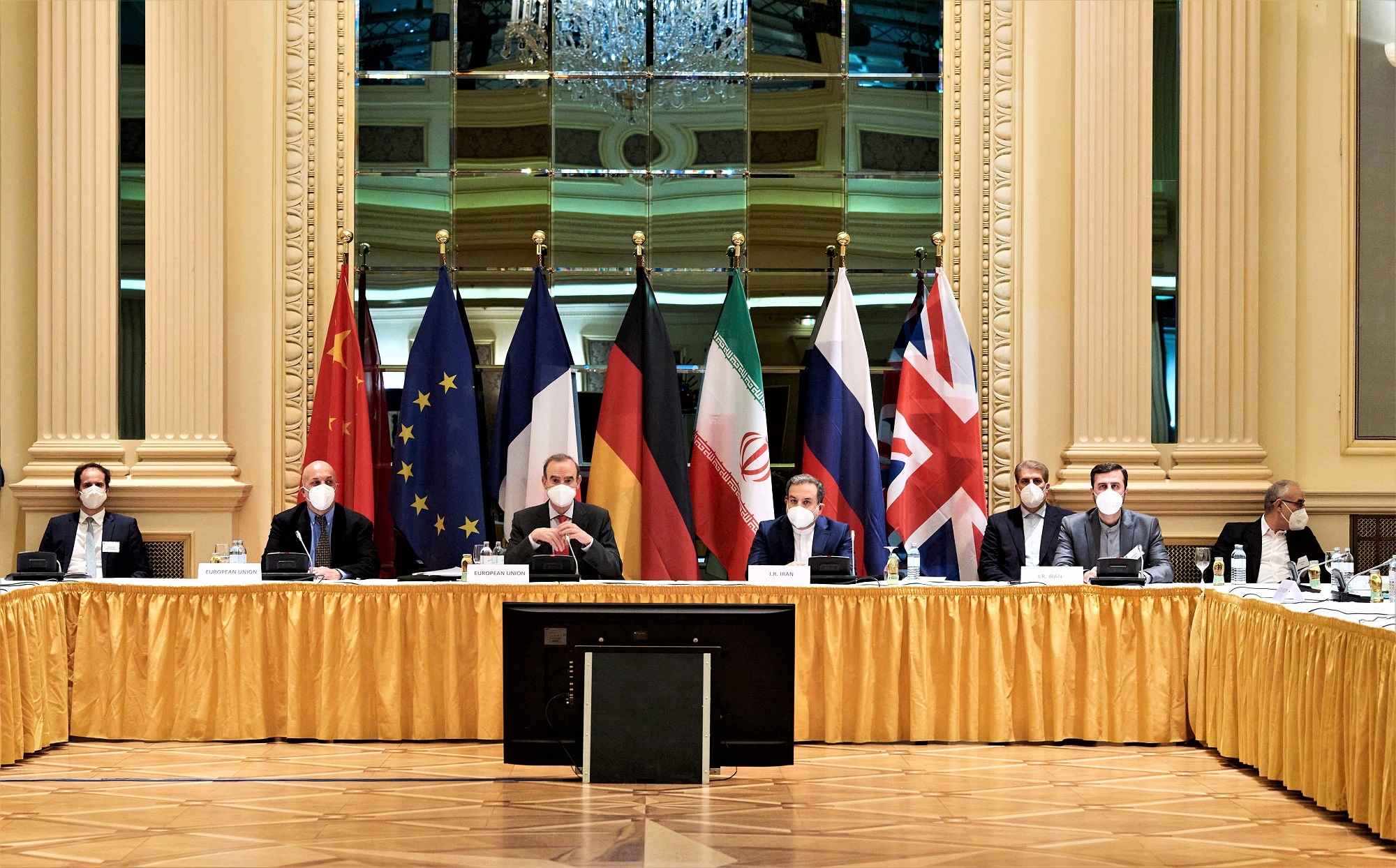
Participants in the nuclear deal have agreed to set up talks at the expert level to determine the steps that Washington and Tehran must take to revive the accord after meetings in Vienna that served as indirect negotiations between Iran and the United States.
Tuesday's talks represent the most significant step to implement the agreement, known as the Joint Comprehensive Plan of Action (JCPOA), more than two months after US President Joe Biden took office.
The Iranian foreign ministry said on Tuesday that two expert groups will discuss the "technical details" on sanctions relief by Washington and nuclear compliance by Tehran and report back to the multilateral Joint Commission which oversees the deal.
Iran's deputy foreign minister Abbas Araghchi, who is leading the Islamic Republic's delegation to the Austrian capital, told Press TV that Tehran is still standing by its position that US sanctions must be lifted in bulk.
"That is quite [a] logical and a very reasonable demand by the Islamic Republic of Iran," Araghchi said. "They have left the JCPOA and they have imposed sanctions. So obviously, if they want to come back, they will have to lift all those sanctions, all together, in one step."
New MEE newsletter: Jerusalem Dispatch
Sign up to get the latest insights and analysis on Israel-Palestine, alongside Turkey Unpacked and other MEE newsletters
Araghchi also vowed that Iran would return to full compliance with the JCPOA as soon as sanctions are lifted.
'Successful'
European intermediaries held separate talks with an American diplomatic team led by Iran envoy Rob Malley at a separate hotel in Vienna after the Joint Commission meeting on Tuesday.
Iranian officials insist that meetings between the US and other participants in the JCPOA do not involve them and do not amount to indirect negotiations between Washington and Tehran.
The JCPOA was signed in 2015 by Iran and the P5+1, the five permanent members of the UN Security Council - the US, Russia, China, the UK and France - plus Germany.
The US pulled out of the deal in 2018, under former President Donald Trump, who embarked on a maximum pressure campaign of sanctions against Iran. In response, Iran has been producing nuclear materials beyond the limits set by the accord.
As a candidate, Biden had vowed to bring Washington back into the deal, but the two countries remain at an impasse over how to revive the accord, with each side arguing that the other should return to compliance first.
On Tuesday, Russian diplomat Mikhail Ulyanov described the Joint Commission meeting as "successful".
"Two expert-level groups (on sanctions lifting and nuclear issues) were tasked to identify concrete measures to be taken by Washington and Tehran to restore full implementation of JCPOA. The groups started to work immediately," Ulyanov wrote on Twitter.
He later added that restoring the deal will not happen immediately. "The most important thing after today’s meeting of the Joint Commission is that practical work towards achieving this goal has started."
Enrique Mora, the European coordinator for the talks, also called the meeting "constructive", vowing to "intensify separate contacts" with all relevant parties, including the US, to get the deal back on track.
"There's unity and ambition for a joint diplomatic process with two expert groups on nuclear implementation and sanctions lifting," Mora wrote on Twitter.
White House spokeswoman Jen Psaki told reporters on Tuesday that Washington expects the nuclear talks to be a long process.
"We continue to believe that a diplomatic path is the right path forward, and there are benefits to all sides," Psaki said.
US State Department spokesman Ned Price welcomed Tuesday's talks, calling them "constructive" despite the fact that American and Iranian diplomats are not meeting directly.
"It is a potentially useful step as we seek to determine what it is that the Iranians are prepared to do to return to compliance with the stringent limitations under the 2015 deal, and as a result what we might need to do to return to compliance ourselves," Price said.
He added that Washington is open to face-to-face talks with Tehran. But absent of that, Iran is meeting with the JCPOA participants and Malley is meeting with European diplomats to convey messages between the parties.
Malley slams Trump's policy
Earlier in the day, Malley dismissed the Iranian demand that all sanctions be lifted before Tehran complies with the nuclear limits of the deal. The US envoy had previously called for talks to synchronise a mutual return to the agreement. Still, he defended efforts to reimplement the JCPOA in an interview with NPR on Tuesday.
"The last three years the Trump administration tested the proposition that putting Iran under maximum pressure and telling it either it needs to come back and forget about the existing nuclear deal and agree to more stringent requirements, or else the pressure would continue... We've seen the result of the maximum pressure campaign. It has failed," Malley said.
On Tuesday, China appeared to back the Iranian position that US sanctions must be lifted to revive the accord.
"The root cause of the Iranian nuclear crisis is the US unilateral withdrawal from the #JCPOA which undermined the consensus of all parties," Chinese foreign ministry official Zhao Lijian wrote on Twitter.
"The US should return to the deal unconditionally and lift all illegal sanctions against Iran and long-arm jurisdiction over a third party."
Tehran and Beijing had signed a 25-year "strategic cooperation" agreement late last month.
Biden says returning to the JCPOA is the best path to prevent Iran from obtaining a nuclear weapon, which his administration says is a US foreign policy priority.
The president and his top aides say they aim to make the deal "longer and stronger", then use it as a vehicle to address other issues with Tehran, including its ballistic missile programme and nuclear activities.
But the White House is facing pressure from Republicans and some Democrats against reviving the nuclear agreement.
"The Iranian regime has held American Siamak Namazi hostage for over 2,000 days," Republican Senator Tom Cotton wrote on Twitter on Tuesday, referring to a US citizen imprisoned in Iran.
"The Biden administration’s first priority should be freeing American hostages, not offering sanctions relief to the ayatollahs."
On Monday, 10 Congress members from Biden's Democratic Party, including Barbara Lee and Andy Levin, issued a joint statement voicing support for the talks to revive the Iran deal.
"Taking the diplomatic steps necessary to return both Iran and the US to compliance with the agreement is critical to preventing Iran from obtaining a nuclear weapon, achieving urgent non-proliferation objectives, and laying the foundation for further negotiations on additional important issues," the lawmakers said.
"We are encouraged by the resumption of talks and urge the Biden administration to engage in the diplomatic efforts needed to restore constraints on Iran’s nuclear program urgently and rejoin this international agreement."
Middle East Eye delivers independent and unrivalled coverage and analysis of the Middle East, North Africa and beyond. To learn more about republishing this content and the associated fees, please fill out this form. More about MEE can be found here.


